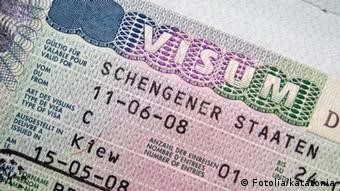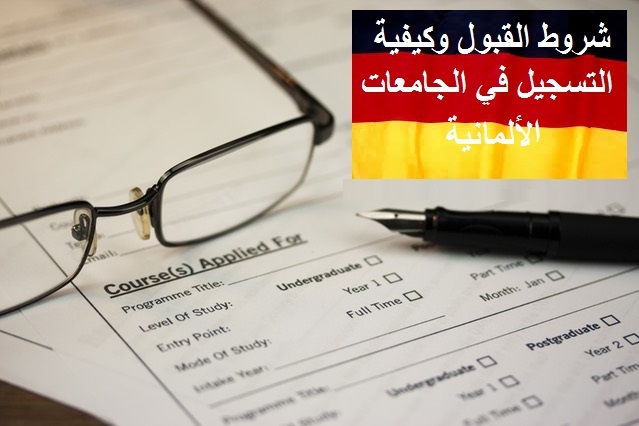
Reunification visa to Germany Familienzusammenführung
Is it possible to apply for family reunification?
The possibility of applying for family unification depends on the status and type of residence. At least a residence permit is required. However, other conditions must be met. The conditions can be known in the paragraph "Conditions that must be met for family reunification".
Who are the family members allowed to be reunited?
According to the Family Asylum Act, the family members who can be requested for family reunification are:
Wife/husband or registered partner. These must be over 18 years of age at the time of marriage. Important: If you get married after arriving in Germany, you must have a residence permit for at least two years to bring your spouse to Germany.
Unmarried minor children. Also, in the case of minor refugees, they can reunite underage siblings only if it can be proven that someone is supporting or sponsoring them and that the available living space is sufficient.
Otherwise, minor siblings and other family members may be reunited only in cases of “exceptional hardship.”außergewöhnliche Härte”, in these isolated cases, there is the possibility of applying for a visa by § 2 of Article 36 or 22 of the Residence Act. This possibility is often called a “hardship case” (“Härtefallregelung”) and is an emergency clause in the Residence Act In practice, it is difficult to obtain a visa for family members using this law There must be an immediate danger to the lives of the family members involved. Several basic requirements must be met, such as The ability to secure a source of livelihood To find out more, you can request Advice from a counseling center or a qualified attorney.
what are conditions that must be met for family reunification?
To bring the family to Germany, the following conditions must be met:
- The ability to make a living: This means that enough money must be earned for the person and his family. It is not allowed to receive any money from the Employment Office or the Social Welfare Office. The amount of money that has to be earned depends on the number of family members. The immigration authorities will carefully check the income.
- Having enough space for housing: The housing area should be large enough for the family. As a rule, you need 12 square meters for each family member of 6 years and over. For children under 6 years old, 10 square meters is sufficient. The offer does not include children up to two years old. In exceptional cases, the apartment can be slightly smaller.
- Having health insurance for the person and his family's a general rule, the family can also be insured through what is known as "family insurance".
- speak german: If spouses* want to come to Germany via family reunification, they must prove that they speak German at level A1. And the presence of a certificate from a language school. This rule does not apply to children under 16 years of age. If the child is already over 16 years old, they must prove that they speak German at level C1 or have successfully completed vocational training. Exception: Some groups are exempt from the German language skills requirement:
- Who has an EU Blue Card or has a residence permit as a highly qualified specialist, researcher, or self-management, whose family does not have to prove any knowledge of the German language.
- If the husband/wife has a university degree, there is no need to know German.
- If the family is from Australia, Israel, Japan, Canada, Korea, New Zealand, or the United States, no knowledge of German is required.
- If the family can't obtain a German certificate in the home country, the immigration authorities can make an exception. This is called a 'hardship list'/ Härtefallregelung".
- If a family member is unable to learn German due to illness or physical, mental, or emotional disability, an exception can be made.
Are there any easier conditions for a German citizen?
Yeah. If you hold German citizenship, your family can come to Germany under easier conditions. In this case, he does not have to prove that he can secure a livelihood for himself and his family. The size of the apartment also doesn't matter. However, the family must meet the above requirements regarding their knowledge of the German language.
How and where can the application be submitted?
The family must apply for family reunification in person to the German diplomatic mission (embassy or consulate-general) in their country of origin or in the country in which they reside. To do this, you must make an appointment with the embassy and then bring all the papers with them to that appointment.
After the family applies to the embassy, the embassy sends the application to the responsible immigration authorities. The Immigration Office checks whether the requirements for family reunification are met and writes a response. The procedure often takes several months, sometimes more than a year. If the immigration authorities agree, the family will receive a visa and can legally travel to Germany.
Documents required to apply at the embassy
The family must bring at least the following documents:
- A hard copy of the email in which the Embassy confirmed the appointment
- Visa applications for all family members
- Family statement (if this document is available in the country of origin)
- Birth certificates for all family members
- marriage certificate
- A copy of the residence permit of a person who is in Germany
These documents may have to be legalized by the German embassy. This means that its authenticity must be confirmed. This certification can be done during the appointment. The embassy can ask for more documents. Therefore, before the appointment, the website of the respective embassy can be checked.
What happens if the immigration authorities do not agree to the family reunification?
When the relevant authorities reject the request for family unification, they are obliged to send a detailed letter justifying the decision. For example, it may be refused, due to doubts about the credibility and legality of the marriage, so the German diplomatic mission (embassy or consulate-general) refuses to issue a visa to family members. then it will be they have two options:
Family members can object to this decision in writing within one month. The complaint must be submitted to the relevant German embassy. In the complaint letter, they should explain why the refusal was not justified. Upon receipt of this letter, the family unification application will be re-examined. Either they will get a visa or the complaint will be rejected. Then the family members will get a so-called (clarification notice).” Remonstrationsbescheid”, where the reasons for refusal are explained in detail.
Then family members can appeal this decision to the Berlin Administrative Court within four weeks, and the best way to do this is to have a Berlin-based lawyer do it for them.
Where can I get advice and support?
Immigration advisory services can helpMigrationsberatungen or the Jugendmigrationsdienst Youth Migration Service. The staff there speak different languages and are familiar with the residence law. They can also recommend attorneys.
Steps after the family arrive in Germany
First, the family must register at the Citizens Registration Office / Residents Registration Office. You can find out more about this in the "Registration with the police" section. The family will then have to inform the immigration authorities. Their family members apply for a residence permit for family reunification (§§27-36AufenthG). Since the immigration authorities have already checked all the documents for your visa application, this is usually very fast. An appointment for this can be booked before the family arrives. Those who have children of school age must enroll them in school. Source: Handbook Germany


